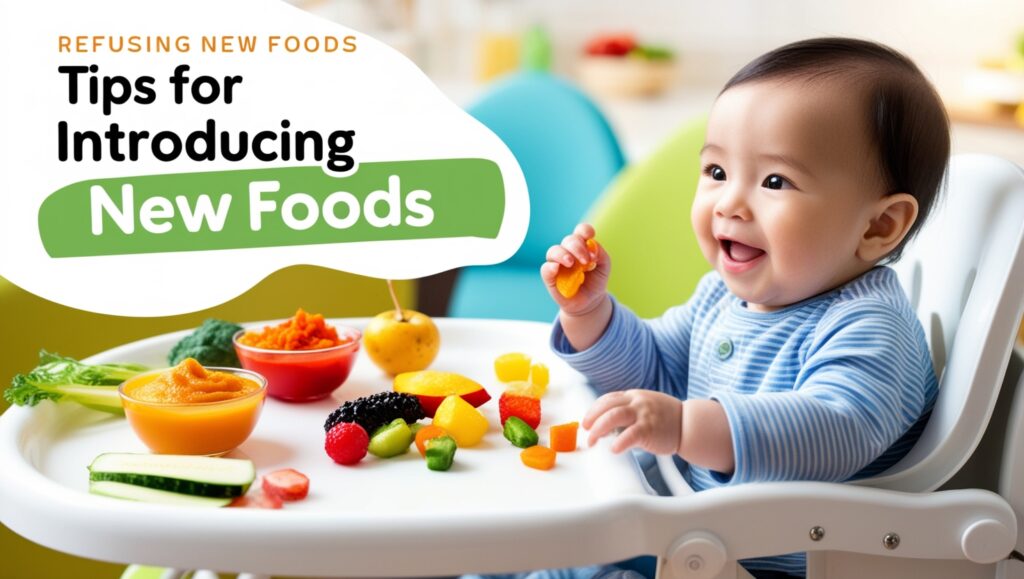Feeding your baby is more than just providing nourishment—it’s an opportunity to bond, explore new tastes, and set the foundation for lifelong healthy eating habits. Here are some expert-approved tips to make the journey smoother and enjoyable for both you and your little one.
1. Start with a Calm Environment
Create a peaceful mealtime atmosphere by eliminating distractions. A quiet setting helps your baby focus on eating and makes mealtime less stressful.
2. Introduce Variety Early
Expose your baby to a wide range of fruits, vegetables, grains, and proteins from the beginning. Early exposure encourages diverse tastes and reduces pickiness later.
3. Follow Your Baby’s Cues
Pay attention to hunger and fullness cues. If your baby turns their head away, pushes the spoon, or closes their mouth, it’s time to stop. Forcing them can create negative associations with food.
4. Focus on Nutrient-Dense Foods
Babies have small stomachs, so every bite counts. Incorporate nutrient-rich foods like avocado, sweet potato, and lentils to ensure they get essential vitamins and minerals.
5. Practice Responsive Feeding
Responsive feeding means recognizing and responding to your baby’s needs. Whether they’re ready for more or signaling they’re done, respect their preferences to build trust.
6. Encourage Self-Feeding
Once your baby shows interest, allow them to try self-feeding with soft finger foods like steamed carrot sticks, cheese cubes, or mini pancakes. This fosters independence and motor skill development.
7. Stay Consistent with Mealtimes
Establishing a regular feeding schedule helps your baby develop a routine. Consistent meals and snacks also prevent them from becoming overly hungry or cranky.
8. Avoid Food Battles
Don’t stress if your baby doesn’t eat much at one meal—they’ll make up for it at the next. Avoid pressuring them, as this can lead to negative associations with eating.
9. Hydration Matters
Offer small sips of water with meals once your baby starts solids. It helps digestion and prevents constipation. Avoid sugary drinks or juices.
10. Celebrate Small Wins
Each new food your baby tries is a milestone! Celebrate their progress, even if it’s just a lick or nibble. Positive reinforcement builds their confidence.
Recipe Highlight: Creamy Avocado & Banana Mash
Ingredients:
- ½ ripe avocado
- ½ ripe banana
Instructions:
- Mash the avocado and banana together until smooth.
- Serve immediately as a nutritious, creamy puree.
Why It’s Great: Packed with healthy fats and natural sweetness, this simple recipe is perfect for babies starting solids.
Quick Troubleshooting Tips
Q: My baby spits out food. What should I do?
- Stay calm and try again another day. Babies often need time to adjust to new flavors and textures.
Q: Should I worry about portion sizes?
- Focus on offering small portions and letting your baby decide how much to eat. Babies are great at regulating their intake.
Q: What’s the best way to introduce allergens?
- Introduce common allergens like peanuts or eggs one at a time and monitor for reactions. Consult your pediatrician if you’re unsure.
Why Feeding Tips Are Crucial
Feeding is a journey filled with milestones. Implementing these tips can transform mealtime challenges into moments of joy, ensuring your baby grows healthy and happy.
For more ideas, recipes, and advice, visit BabyFeasts.com—your trusted resource for baby feeding guidance.
Every spoonful is a step toward a healthier future!

